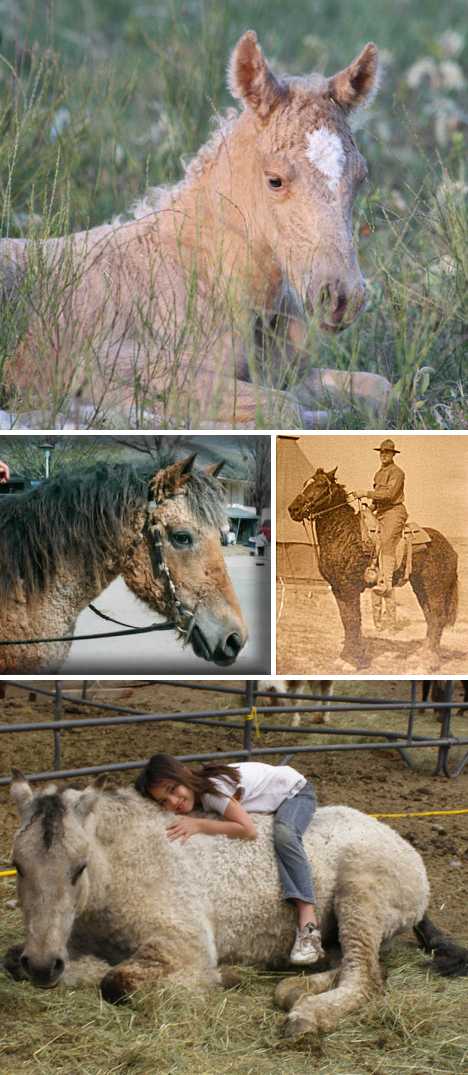American Bashkir Curlies or North American Curly Horses

Horses have been living alongside humans for thousands of years, they have helped us work the land, offered a means of transportation and provided therapy for some. These "American Bashkir Curlies or North American Curly Horses," are just one breed of horse that we get to enjoy.
American Bashkir Curlies also known as North American Curly horses were first discovered by white men in America in the wild herds of mustangs in Eastern Nevada at the turn of the 20th Century. The Crown and Sioux Indians had Curly horses as early as 1800. Interestingly there is also written and pictorial evidence of curly horses at different times and different places around the world. Charles Darwin wrote about curly horses in South America. It is not known if these horses are related to the North American Curly horses, this might be something we will know one day.
The Damele ranching family in Nevada, were the first to gather and use Curlies on their ranch in the 1930s. They interbred the tough and intelligent Curlies with their ranch horses and with one of their Arabian stallions, Nevada Red, and another a Morgan stallion, known as Ruby Red King. After interbreeding the horses, they found that the curly coat would often come through on the cross bred foals, proving the Curly gene to be dominant in the range Curlies. Other characteristics that came through were the strong bone and hooves; the calm, intelligent, easily trainable temperament; the friendly personality; and the tough constitutions and stamina. According to current scientific breed recognition guidelines, the North American Curly horse is not a true breed, but rather a coat type, with the goal of many Curly Horse breeders being to develop real breeds of horses that are curly coated.
To read more about this subject, visit the website link below to the "ICHO," website.
Learn MORE at ICHO page
To help with slow website load, we have put all photos for this article here: View photo gallery.







